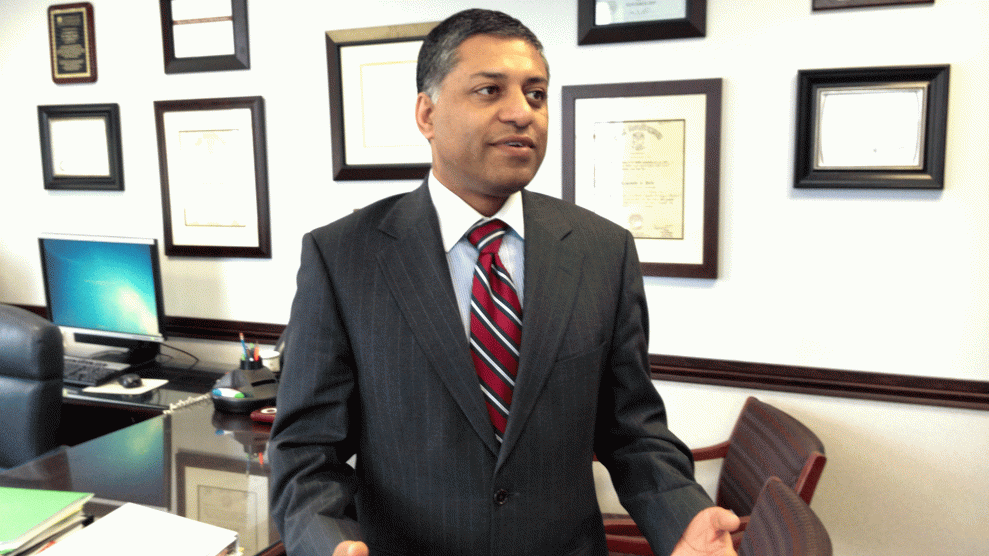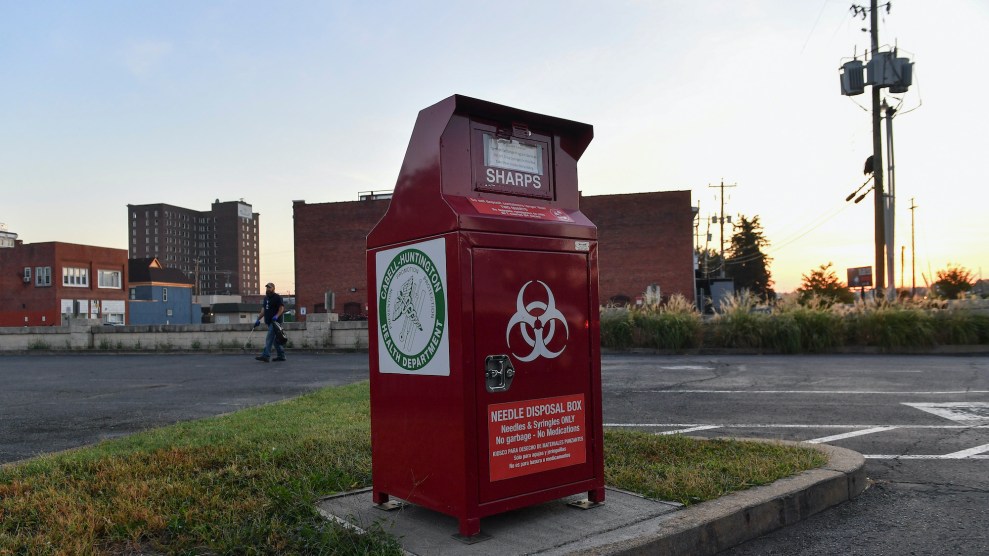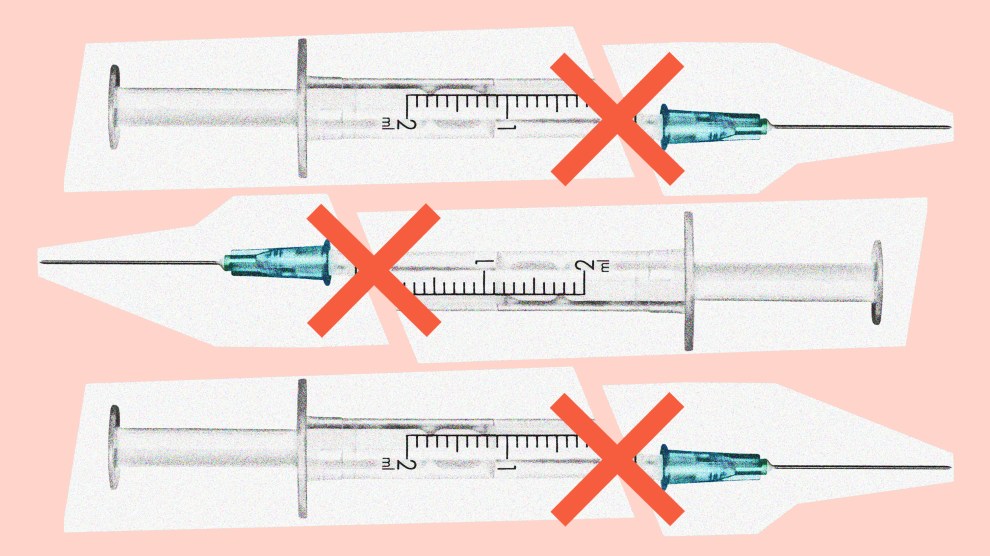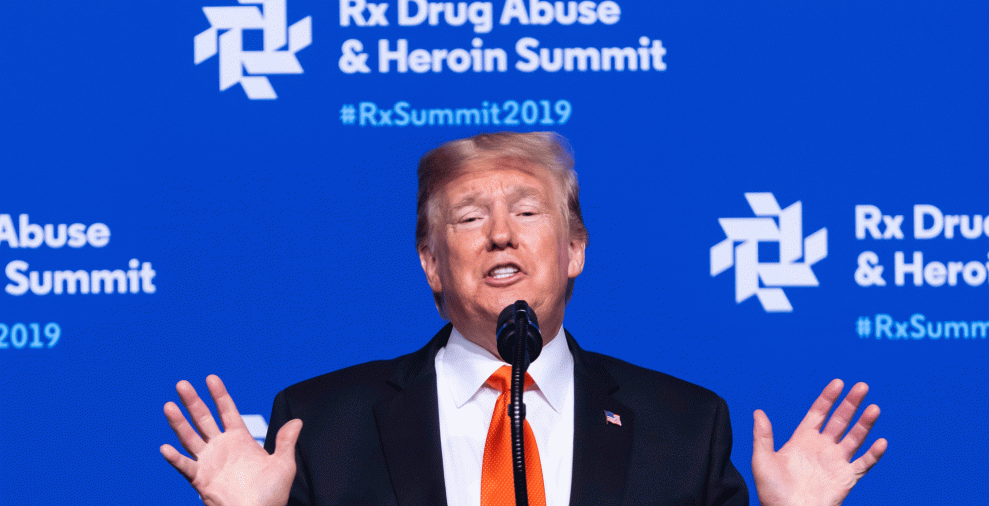
John Raby/AP
On Tuesday, President Biden nominated Dr. Rahul Gupta, who led the response to West Virginia’s devastating overdose crisis, to direct the Office of National Drug Control Policy. The nomination comes amidst news that overdose deaths surged to a record 93,000 in 2020—an increase of nearly 30 percent from the previous year.
Gupta has a number of feathers in his cap that make him a desirable pick. He’s a physician with a history of treating substance use. During his four-year stint as state health commissioner in one of the most conservative states in the country, West Virginia saw an increase in the number of harm reduction programs, which, in addition to distributing clean needles, often provide primary care services and access to addiction treatment. Crucially, he’s also a longtime ally of West Virginia’s Sen. Joe Manchin, a key vote in the Democrats’ razor thin majority.
But some addiction experts have criticized Gupta, in particular for not doing enough to prevent the shutdown of a key syringe exchange in Charleston. Until 2018, the Kanawha-Charleston Health Department operated a busy needle exchange, providing clean syringes and health services to hundreds of clients. As the New York Times later noted, “This might have been its downfall: It was too successful.”
In 2018, local officials in Charleston suspended the county’s syringe exchange program after a bitter fight between the city’s public health and law enforcement leaders. Though decades of evidence have shown that such programs reduce overdose rates and infectious disease transmission, they remain controversial among those who see them as enabling drug use. After the program shut down, addiction experts from across the country warned that the absence of clean needles would cause viral hepatitis and HIV to proliferate.
While Gupta didn’t have the authority to prevent the shutdown altogether, critics say he could have spoken out against it, highlighting the program’s many beneficial attributes. Instead, in the aftermath of the shutdown, the state’s Bureau for Public Health, which Gupta led, stepped in to assess the already-suspended program. Gupta co-authored the resulting audit. As I wrote earlier this year:
The resulting 62-page report primarily took issue with the program’s record-keeping and suggested that the syringe exchange would have fared better with more restrictive rules, like barring clients from picking up clean needles for other users. The authors ultimately recommended suspending the already-suspended program, even as they acknowledged a “significant limitation” to their research: They hadn’t talked to a single syringe exchange client in the course of their evaluation. After the audit published, Gupta suggested that other needle exchanges could learn from its suggestions.
As public health experts predicted, Charleston saw an explosion of infectious disease: Kanawha County, which includes Charleston, is currently experiencing an HIV outbreak that the Centers for Disease Control and Prevention considers “the most concerning in the United States.” Still, state policymakers passed a law in April that threatens to shut down a number of syringe exchange programs in the state.
The 2018 audit “wound up giving people ammunition against further expansion of syringe service programs in the state,” said an addiction expert familiar with the situation in West Virginia. “When they want to defend what they’re doing, they say, ‘Well, look at Gupta’s report.'” The expert added, “He did some good things and he did some bad things. It’s a very mixed bag.”
The shutdown left just one operating syringe exchange in Charleston: Health Right West Virginia, where Gupta volunteered. But Health Right West Virginia, too, has been a source of controversy. Its needle exchange program, which is held up by many Charleston City Council members as a model, has restrictive rules about syringe distribution that contradict federal guidance, requiring people to return used needles in order to receive new clean ones. It has among the lowest rates of syringes distributed per capita of any state-certified harm reduction program, according to an analysis by Mountain State Spotlight. “If you come back without needles, you will not get any more needles,” Health Right director Angie Settle said in 2018. “There are no second chances.”
Gupta’s uneven history has left addiction experts unsure of what to expect if he is confirmed by the Senate. “The Biden Administration has made enhancing evidence-based harm reduction efforts one of ONDCP’s top priorities,” said Robin Pollini, a West Virginia University epidemiology professor. “I sincerely hope Dr. Gupta will embrace the opportunity to lead on that issue. I would ask that he bring that leadership without delay back to West Virginia, where anti-harm reduction laws at both the state and local levels are literally killing our loved ones, friends, and neighbors.”
















